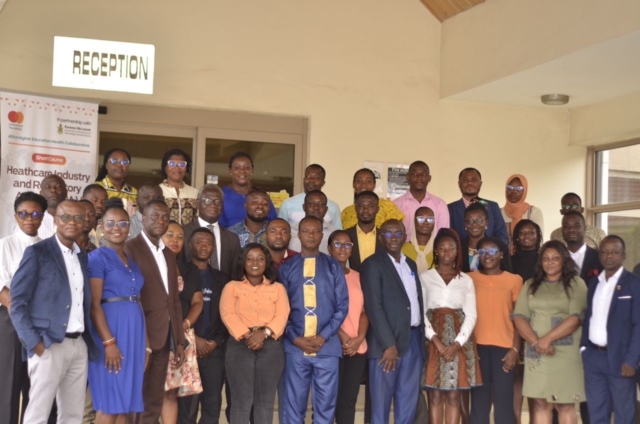Many health professionals in Ghana are failing to conduct regular recalibration of medical equipment for quality healthcare delivery.
Public health experts argue that non-compliance to the standard practice of fixing uncertainties in medical devices frequently could be contributing to false diagnoses of diseases.
The concern was expressed at a workshop on Health Industry and Regulatory Affairs by the Mastercard Foundation Africa Higher Education Health Collaborative in Kumasi.
Speaking at the event, a lecturer at the School of Public Health, KNUST and pillar lead of Health Employment under the Collaborative, Dr. Kofi Akohene Mensah, observed some challenges in the regulation of the pharmaceutical industry and the use of medical equipment.

Dr. Kofi Akohene Mensah - Pillar Lead, Health Employment under the Mastercard Foundation Africa Higher Education Health Collaborative.
He highlighted some practices by health professionals contributing to false diagnosis of disease.
“Most health care professionals are not aware of regular calibrations. When we buy thermometers, sphygmomanometers, we don’t calibrate them. Even when they conduct initial calibrations, they don’t do it regularly. So, only God knows the number of people who have been diagnosed falsely of hypertension,” he said.
The Mastercard Foundation Africa Higher Education Health Collaborative in partnership with the School of Public Health-KNUST is organising a weeklong event on Healthcare Industry and Regulatory Affairs.

The workshop targets researchers and practitioners from varied sectors of the health industry.
Participants will undertake courses in the regulatory framework of the pharmaceutical and medical equipment divisions of the health industry.
With the emergence of advanced technology, including artificial intelligence, Professor Anthony Kwaku Edusei, a facilitator for the coursework, believes the training would apprise participants of current digital health practices.
“The participants will be equipped with knowledge and skills in technologies that can help facilitate healthcare delivery,” he said.
The workshop brought together 30 participants from across the country who are positive about grasping concepts in the coursework for application.

“We will better understand how these medical devices work. We can also collaborate with others from the industry to conduct research in these fields,” Martha Naab said.
Latest Stories
-
Revisiting the forensic audit EC will increase credibility of future elections – Omane Boamah
11 minutes -
Africa Food Systems Parliamentary Network urges governments to increase investment in agriculture
8 hours -
AU and partners urge youth to get involved in efforts to transform continent’s food systems
8 hours -
Fire kills 3-year-old at Asawase-Dagomba Line in Ashanti Region
9 hours -
Paskal A.B. Rois: How Mahama inspires me
9 hours -
Complete abandoned projects in Akatsi North District – Chiefs to Mahama
9 hours -
Painter and sculptor B. Acheampong turning his passion for art into profitable venture
10 hours -
Presidential lodge, RM residency in Ashanti region left to rot away
10 hours -
Herty Corgie highlights the essence of gratefulness in ‘My Gratitude’
12 hours -
ANNOUNCEMENT: Joy FM temporarily goes off air January 11
12 hours -
Yango honored with two titles at the Technovation Africa Awards 2024
13 hours -
Aowin Traditional Council declares war on illegal mining with spiritual intervention
13 hours -
Leadership must ensure equity for all citizens, regardless of faith – Asiedu Nketiah
13 hours -
Prof. Alex Manu appointed Executive Director at Centre for Social Justice
13 hours -
Imminent changes within some key security agencies, state institutions, and its implications
13 hours

